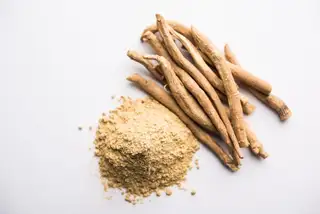
What Vitamins & Nutrients Do Vegans Need?
A vegan diet, while rich in many nutrients, does require careful planning to ensure that it provides all the necessary vitamins and minerals for optimal health. Here's an in-depth look at the key nutrients that vegans need to focus on, along with dietary sources and practical tips for incorporating them into a balanced vegan diet.
1. Protein: The Building Block
Protein is essential for growth, repair, and maintenance of body tissues. Vegans can get their protein from a variety of plant-based sources:
- Legumes: Lentils, chickpeas, black beans, and other beans are rich in protein.
- Nuts and Seeds: Almonds, sunflower seeds, chia seeds, and pumpkin seeds are great sources.
- Whole Grains: Quinoa, brown rice, barley, and whole wheat pasta provide protein and fiber.
- Soy Products: Tofu, tempeh, and edamame offer complete protein profiles.
2. Omega-3 Fatty Acids: Essential Fats
Omega-3s are crucial for brain health, heart health, and reducing inflammation. Vegan sources include:
- Flaxseeds and Chia Seeds: Rich in ALA, which the body can convert to EPA and DHA.
- Walnuts: A plant source of ALA.
- Algae-Based Supplements: Direct source of EPA and DHA for vegans.
3. Vitamin B12: Nerve and Blood Health
Vitamin B12 is critical for nerve function and red blood cell formation. Vegans must ensure adequate intake through:
- Fortified Foods: Plant-based milks, cereals, and nutritional yeast.
- Supplements: B12 supplements are often necessary to prevent deficiency.
4. Iron: Oxygen Transport
Iron is vital for transporting oxygen in the blood. Vegan sources of iron include:
- Leafy Greens: Spinach, kale, and collard greens.
- Legumes: Lentils, chickpeas, and beans.
- Dried Fruits: Prunes, apricots, and raisins.
- Fortified Cereals: Iron-fortified breakfast cereals.
5. Zinc: Immune System Support
Zinc supports the immune system and is involved in many enzymatic reactions:
- Nuts and Seeds: Pumpkin seeds, sesame seeds, and sunflower seeds.
- Legumes: Chickpeas, lentils, and peas.
- Whole Grains: Oats, barley, and wheat germ.
- Fortsified Cereals: Ready-to-eat breakfast cereals.
6. Calcium: Bone Health
Calcium is essential for strong bones and teeth:
- Green Leafy Vegetables: Kale, bok choy, and collard greens.
- Fortified Plant Milks: Almond, soy, and oat milk.
- Tofu: Especially calcium-set tofu.
- Calcium-Fortified Juices: Some fruit juices are calcium-fortified.
7. Vitamin D: Bone and Immune Health
Vitamin D helps the body absorb calcium and supports immune function:
- Sun Exposure: Natural source of vitamin D.
- Mushrooms: Some varieties, like maitake and shiitake, contain vitamin D.
- Fortified Foods: Plant-based milks and orange juice.
- Supplements: May be necessary, especially in winter months.
8. Iodine: Thyroid Function
Iodine is crucial for proper thyroid function and metabolism:
- Seaweed: Kelp, dulse, and nori are rich in iodine.
- Iodized Salt: Ensures adequate iodine intake.
- Fortified Foods: Some breads and dairy alternatives are iodine-fortified.
9. Vitamin K: Blood Clotting and Bone Metabolism
Vitamin K is important for blood clotting and bone health:
- Green Leafy Vegetables: Spinach, Swiss chard, and kale.
- Cruciferous Vegetables: Broccoli, cabbage, and Brussels sprouts.
10. Folate (Folic Acid): DNA Synthesis
Folate is necessary for DNA synthesis and cell division:
- Green Leafy Vegetables: Mustard greens, turnip greens, and collard greens.
- Legumes: Black-eyed peas, lentils, and chickpeas.
- Citrus Fruits: Oranges, lemons, and grapefruits.
11. Magnesium: Over 300 Enzymatic Reactions
Magnesium is involved in over 300 enzymatic reactions in the body:
- Nuts and Seeds: Almonds, cashews, and pumpkin seeds.
- Whole Grains: Quinoa, brown rice, and buckwheat.
- Green Leafy Vegetables: Spinach, Swiss chard, and beet greens.
12. Fiber: Digestive Health
Fiber is essential for maintaining digestive health and preventing constipation:
- Whole Grains: Barley, bulgur, and whole wheat.
- Legumes: All varieties of beans, peas, and lentils.
- Fruits and Vegetables: Apples, pears, broccoli, and Brussels sprouts.
13. Phytonutrients: Antioxidant and Anti-Inflammatory
Phytonutrients are plant compounds with antioxidant and anti-inflammatory properties:
- Fruits and Vegetables: A wide variety of colorful fruits and vegetables.
- Teas: Green tea and white tea are rich in catechins.
14. Probiotics: Gut Health
Probiotics support gut health and digestion:
- Fermented Foods: Tempeh, miso, and sauerkraut.
- Plant-Based Yogurts: Look for vegan options with added probiotics.
A well-planned vegan diet can provide all the necessary nutrients for a healthy lifestyle. By focusing on a variety of plant-based foods and being mindful of key nutrients like protein, omega-3s, vitamin B12, and iron, vegans can achieve optimal health. Including a diverse range of fruits, vegetables, whole grains, legumes, nuts, and seeds, along with fortified foods and supplements when necessary, ensures a comprehensive nutrient intake. It's also important to consult with healthcare professionals or registered dietitians to tailor dietary needs to individual lifestyles and health conditions.





